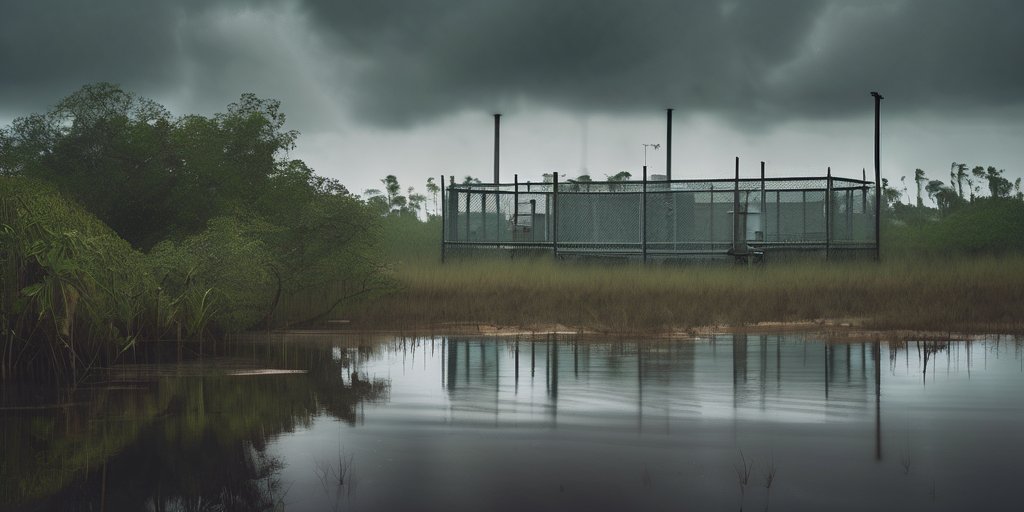Donald Trump, the 45th President of the United States, is making headlines with his planned visit to Florida’s ‘Alligator Alcatraz,’ a newly established detention facility for undocumented migrants. Nestled in the Everglades, the name alone conjures a vivid image of isolation as Trump attempts to present a strongman persona to thrill his voter base. This facility, designed to house 5,000 migrants, has already sparked significant controversy among immigration rights activists and environmentalists, particularly within Florida’s indigenous communities who fear threats to sacred lands.
During his visit, which comes at a time of growing scrutiny over the treatment of detained migrants, Trump is poised to amplify his administration’s strict immigration policies. Language from White House officials, including press secretary Karoline Leavitt, frames the detention camp as a deterrent for lawbreakers. Trump’s rhetoric often equates undocumented migrants with criminals, fueling a narrative that seeks to justify aggressive enforcement tactics. In contrast, studies reveal that a substantial portion of migrants apprehended have no serious criminal convictions, raising important questions about the ethics of labeling them as threats.
The facility’s stark imagery and the overt marketing of ‘Alligator Alcatraz’—complete with surprising merchandise from the Florida GOP—reflect a strategy focused on performative toughness rather than actual policy improvement. As Trump gears up for the 2024 election, his administration’s message appears to prioritize optics and shock value in a bid to galvanize his base, drawing parallels to authoritarian displays witnessed in foreign states under dictatorship.
Trump’s attraction to such vivid symbolism is matched by his fascination with popular culture and controversial figures as evidenced in past comments about infamous prisons. His administration continues to craft moments designed to provoke outrage among opponents as a means of consolidating his political power. With each calculated photo opportunity, the implications of rhetoric surrounding immigration further complicate the humanitarian aspects of the ongoing crisis.
Trump’s upcoming trip to the Florida detention site marks yet another intersection of showmanship and policy. As protests and fierce opposition mount against his administration’s tactics, the darker historical echoes of detention camps should not be ignored. The juxtaposition of civil rights discussions with immigration policy paints a troubling picture as America grapples with the principles of justice and human rights in the context of its immigration system.
Ultimately, Trump’s visit embodies a larger narrative of polarization that challenges the very fabric of legislative progress on immigration. Americans are confronted not only with a visible border crisis but also with a presidency that continues to redefine the terms of public discourse around immigration and law enforcement—an administration characterized by brash declarations, stark imagery, and an unyielding resolve against perceived threats.
